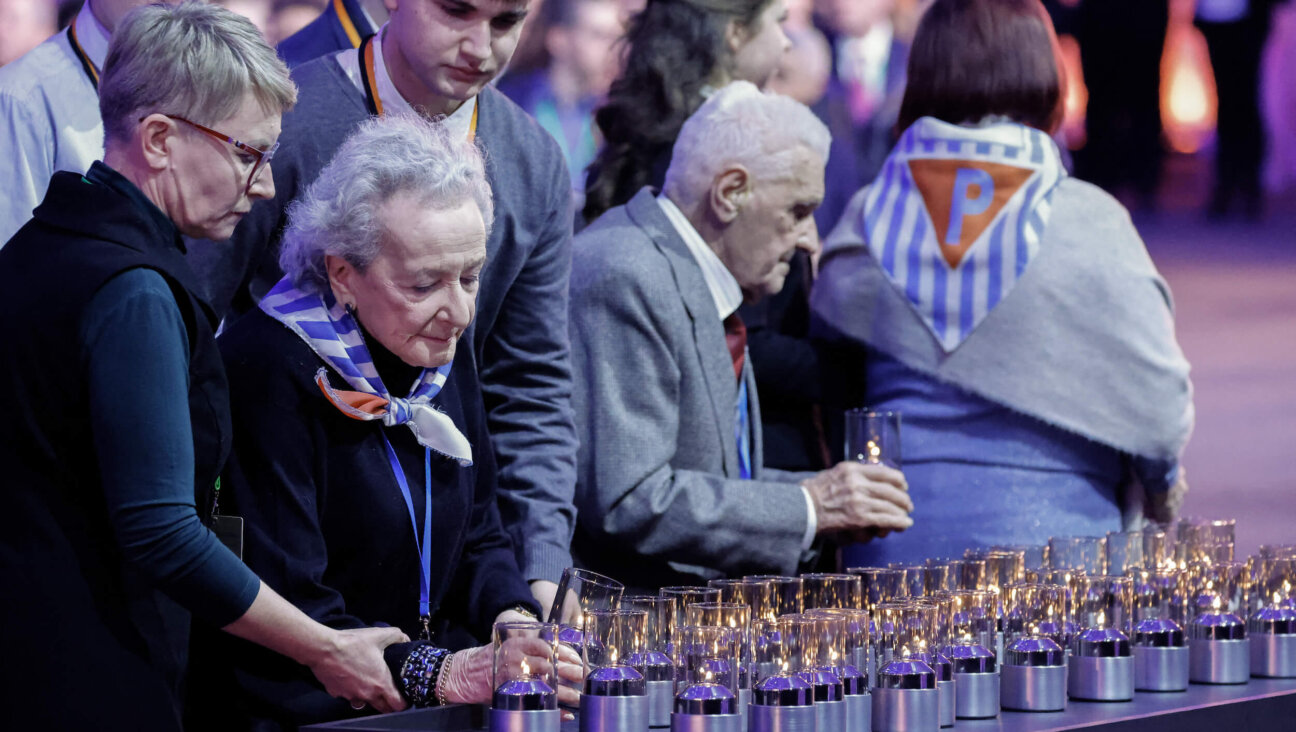Unleashing Women’s Leadership Potential
In the last two years, five of the most significant organizations in the Jewish community have elected a woman as president or chair, each for the first time in its history.
This is not mere coincidence. It reflects the beginning of a historic change. Just five years ago, a study of 45 major American Jewish organizations found that more than half had never had a single women president or board chair. Indeed, the study, sponsored by the Ma’yan Jewish Women’s Project and based on the research of sociologists Bethamie Horowitz, Pearl Beck and Charles Kadushin, found that nearly two-fifths of the organizations studied had 15% or fewer women on their boards.
And now five organizations — the American Israel Public Affairs Committee, Anti-Defamation League, Jewish Museum, United Synagogue of Conservative Judaism and Jewish Agency for Israel — have chosen women to lead them.
What has changed?
The most notable change is a new determination among Jewish women themselves. Jewish women increasingly understand that they cannot wait to have their talents recognized. A number of the women who have taken on major leadership roles in national organizations actively sought these influential posts. These women, and many more like them, are stepping up to the microphone to make their voices heard. They are using their philanthropic resources to support causes that are meaningful to them, and they are insisting that they receive their rightful place at the table, reflecting their expertise, talent, vision and resources.
To be sure, we all would like to believe that we make leadership choices in the context of a strict meritocracy. In practice, however, the Jewish communal arena mirrors the gender-biased tendencies of other professional spheres. Research studies in the medical field, the legal professions, the judicial system and academia have all reached the same conclusion: On average, women have to perform two-and-a-half times better than their male counterparts in order to be rated equally by their colleagues. Women must attain a presence of at least one-third in the average leadership group in order to be seen as members in equal standing and not mere tokens.
Furthermore, my research has shown that Jewish organizations lag considerably behind other not-for-profit and foundation sectors in advancing women to top leadership posts. The danger, from our community’s point of view, is that increasingly women, frustrated in their efforts to make their mark in the Jewish community, will direct their energies elsewhere.
Given these realities, it can no longer be considered sufficient to conduct leadership searches on the basis of a supposedly pure meritocratic standard that ignores questions of gender.
Confronted with the challenge of women’s advancement, organizational leaders regularly ask if it is not enough simply to choose the best person for the job. Based on the available research, it is safe to assume that if a woman has managed to advance to the point that she is in contention for a top position, there is every chance that, in fact, she is likely to be the best candidate for the post.
And if more women lead, what then? Will substantive change ensue?
Thirty years of research by a range of political scientists studying the impact of women legislators in state and local government gives credence to the hypothesis that women leaders will operate differently. Key findings from these scholarly inquiries demonstrate that women legislators rely on a wider range of opinions than their male counterparts in formulating policy, show evidence of greater responsiveness to constituent requests and emphasize hands-on collaboration rather than a hierarchical “control-and-command” approach. There is no consensus on the reasons for these disparities, but most researchers note the differing routes that women must take to reach these posts, and the influence of their experiences along the way.
It seems to follow that, as more women attain senior volunteer leadership roles in our own Jewish community, they too will influence the contexts and environments in which they operate. Many — though not all, of course — will strive to make our organizations more inclusive and collaborative. Many — though not all — will encourage projects and ideas that infuse new vitality into the Jewish community, even as they work to sustain the complex infrastructure that we need to protect Jewish lives and Jewish spirit.
Women leaders will move in these directions because, given their experiences en route to the top, they will have seen the mounting evidence that our most venerable organizations need to embrace diversity, flexibility and innovation. They will understand the innovations that these organizations must adopt if they are to become magnets for the next generation of young Jews — a generation that views its Jewish choices as utterly discretionary statements of identity and has little appetite for our traditional organizational affiliations or hierarchies.
I suspect that this difference will emerge in our communal leadership even more dramatically than it has appeared in other arenas. We find ourselves at a transitional moment, with women coming to their leadership roles while the memory of their “minority” status is still fresh. I believe that women will seek inclusiveness and collaboration, not because they are more altruistic, but rather because those qualities served them well during those times when they were denied authority and leadership.
At a time when the challenges of external realties — from the Iraq crisis to the troubled economy — threaten to constrain our community’s continued growth and development, it becomes even more critical to find ways to unleash the leadership potential of each and every person who is interested in participating in Jewish life.
For many decades, the focus of women’s leadership initiatives was primarily to create strategies that would move women forward. Today, the focus is shifting. The new challenge is for women to use the leverage of their new leadership posts to advance new ideas, to include new voices, to fuel our community’s creativity and to expand our capacity to change and grow.
Shifra Bronznick, a change management consultant, is founding president of Advancing Women Professionals and the Jewish Community. She is convening a national summit of Jewish women volunteer leaders, “Impact and Influence,” in May 2003.
A message from our Publisher & CEO Rachel Fishman Feddersen

I hope you appreciated this article. Before you go, I’d like to ask you to please support the Forward’s award-winning, nonprofit journalism so that we can be prepared for whatever news 2025 brings.
At a time when other newsrooms are closing or cutting back, the Forward has removed its paywall and invested additional resources to report on the ground from Israel and around the U.S. on the impact of the war, rising antisemitism and polarized discourse.
Readers like you make it all possible. Support our work by becoming a Forward Member and connect with our journalism and your community.
— Rachel Fishman Feddersen, Publisher and CEO























